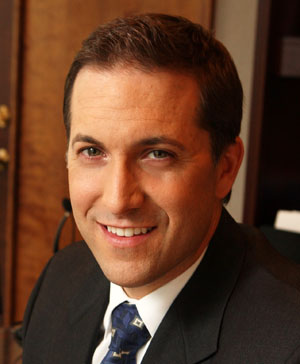By M. Dennis Taylor
The State Attorney’s Office has reported that Palm Beach County is the epicenter in Florida of the opioid crisis with more deaths (615 in 2017), more overdoses (with one in 10 victims dying), more insurance fraud and more bogus treatment facilities than anywhere else in the state.
Palm Beach County Fire-Rescue reports show 57 responses to overdoses in Wellington alone in 2017 — that’s almost five a month.
Palm Beach County State Attorney Dave Aronberg said that many of the problems come from “flop houses.”
“There is a need for good sober homes in the community,” he said, to give recovering addicts a place to live. However, there are too many unscrupulously run living spaces that are just drug dens and a haven for human trafficking, he said.
Legitimate sober homes provide much-needed living accommodations for those in recovery. “Well run, drug-free facilities support recovery, not relapse,” Aronberg said.
Aronberg’s office has been leading a crackdown on rogue sober homes.
The bad actors operating such sober houses may be committing insurance fraud, taking advantage of vulnerable recovering addicts, diminishing the credibility of the legitimate facilities and creating a blight on the neighborhood.
Chief Assistant State Attorney Alan Johnson said that when a well-run operation is in the neighborhood, nobody will notice. They have good neighbor policies. The yard and house are usually among the best looking on the block.
“If you have eight cars parked all over the yard, loitering out front and the grass is never cut, local governments can use code enforcement to stop them,” Johnson said. “If the recycling is full of whiskey bottles or beer cans… or if you see [evidence of] drug use, they are no longer protected. Call the Sober Home Task Force or the Palm Beach County Sheriff’s Office,” Aronberg said.
The enforcement has to be consistent and equally enforced throughout the neighborhood. A single home can’t be discriminated against.
Aronberg established Palm Beach County’s model effort, making it the only county in the country to have a dedicated Sober Home Task Force to investigate the abuses of sober homes and the drug treatment industry and provide recommendations to fix them.
“No treatment goes on in a sober home, it is just a place to live, so there is no oversight,” Johnson said. “Anybody who has a lease or owns a property can open a sober house.”
“There is no registration required,” Aronberg added.
He continued that sober home and drug treatment facility violations have been met with arrests and prosecutions that have resulted in convictions. However, these convictions sometimes just chase other bad actors into neighboring jurisdictions.
Both men frequently speak about the problems of the opioid crisis and sober homes, recently talking in the western communities to Crime Watch groups and various clubs.
“I speak about what we are trying to do to fix the problem in the civil and criminal areas,” Johnson said. “[Opioid abuse] is such a thorny issue. When I speak I ask, ‘How many people [know] a person affected by the opioid epidemic?’ and every hand goes up. It is catastrophic. It has touched almost every home. It is an everyman epidemic.”
The opioid crisis is not limited to adults who may have become addicted due to inattentive physicians prescribing legal prescriptions. The abuse of the substances as illegal street drugs that are 100 to 10,000 times more potent than morphine is rampant among younger demographics — especially non-residents who come to South Florida, which has a long history in the drug treatment industry, to overcome a problem that developed in their hometown.
“The attorney general in Massachusetts issued a health travel advisory for South Florida, saying you need to be very careful before you go or send someone to South Florida for treatment,” said Johnson, who described an anecdote of mostly young people on their parents’ insurance who come to South Florida and enter a cycle of relapse, instead of a cycle of recovery, because insurance treatment is for a single episode of addiction and lasts for a specified period of time, perhaps one or two months.
Bogus treatment facilities will contact patients who have exhausted their insurance for a specific instance. Some will then encourage them to relapse in order to get another round of insurance in a recommended bogus facility.
Johnson explained that this scenario can go on for months or years, too often ending in the death of the patient.
“Many times, they go home in a body bag,” said Johnson who explained how his office is working on getting laws on the books against kickbacks for referrals to treatment facilities.
Aronberg said that the PBSO can handle law-breaking activities at suspect treatment facilities or sober homes. He also invited people to call the task force hotline at (844) 324-5463.








